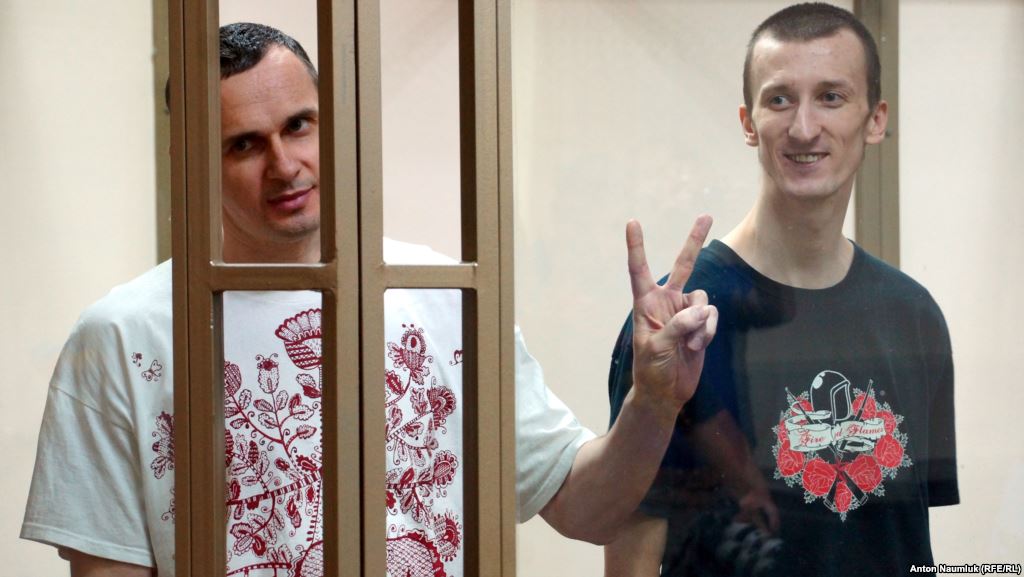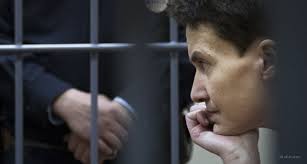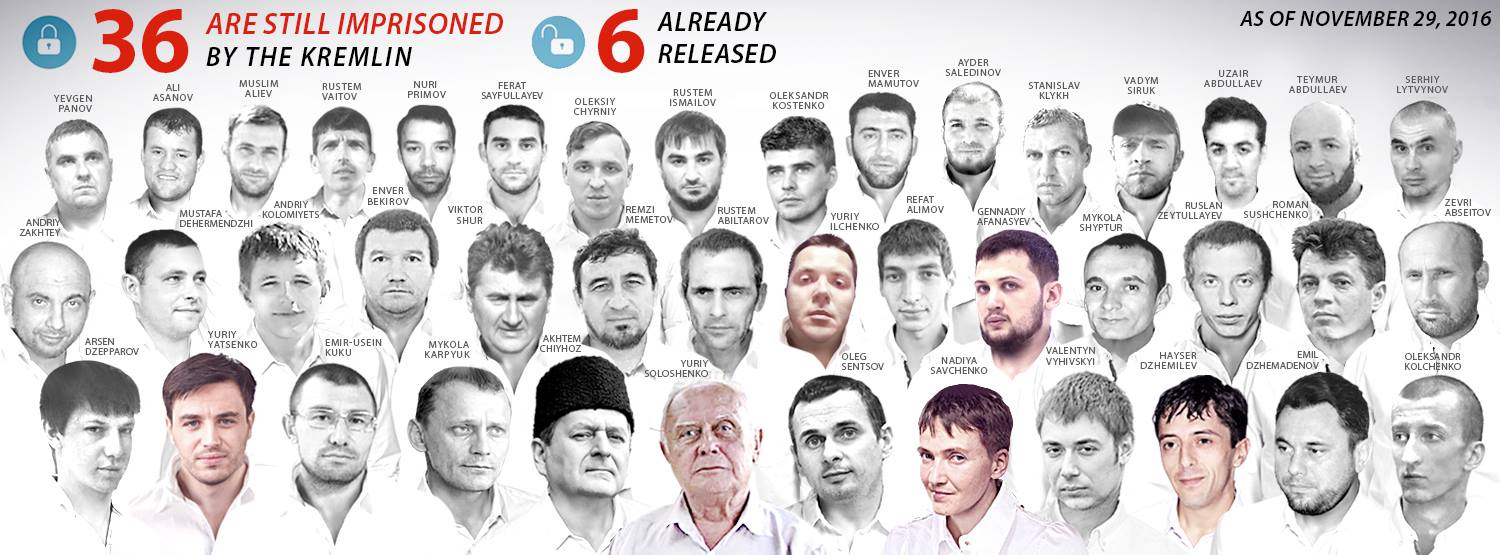Mykola Karpiuk and Stanislav Klykh, two Ukrainians who are being accused of crimes committed in Chechnya 20 years ago (the "Chechen case") in another of Russia's show "trials" against Ukrainians, have had "extra lawyers" foisted upon them as the highly politicized trial is coming to the end - the court is expected to give its verdict on 4 May 2016.
Unlike the other "show trials" of Ukrainians in Russia such as Nadiya Savchenko, Oleg Sentsov, and others, where the judges simply cooperated with the prosecution and ignored proofs of innocence and alibis, the men actually stand a chance of being defended against absurd accusations. Their lawyers Dokka Itslayev and Marina Dubrovina have succeeded in securing a jury trial for their defendants, which is less likely than a court to dismiss clear proof of innocence. Human rights activists from EuromaidanSOS and the Ukrainian Human Rights Helsinki Union fear that the additional state lawyers were forced upon the prisoners of the Chechen case to discredit them before the jury and secure the needed outcome - at least 15 years of jail.
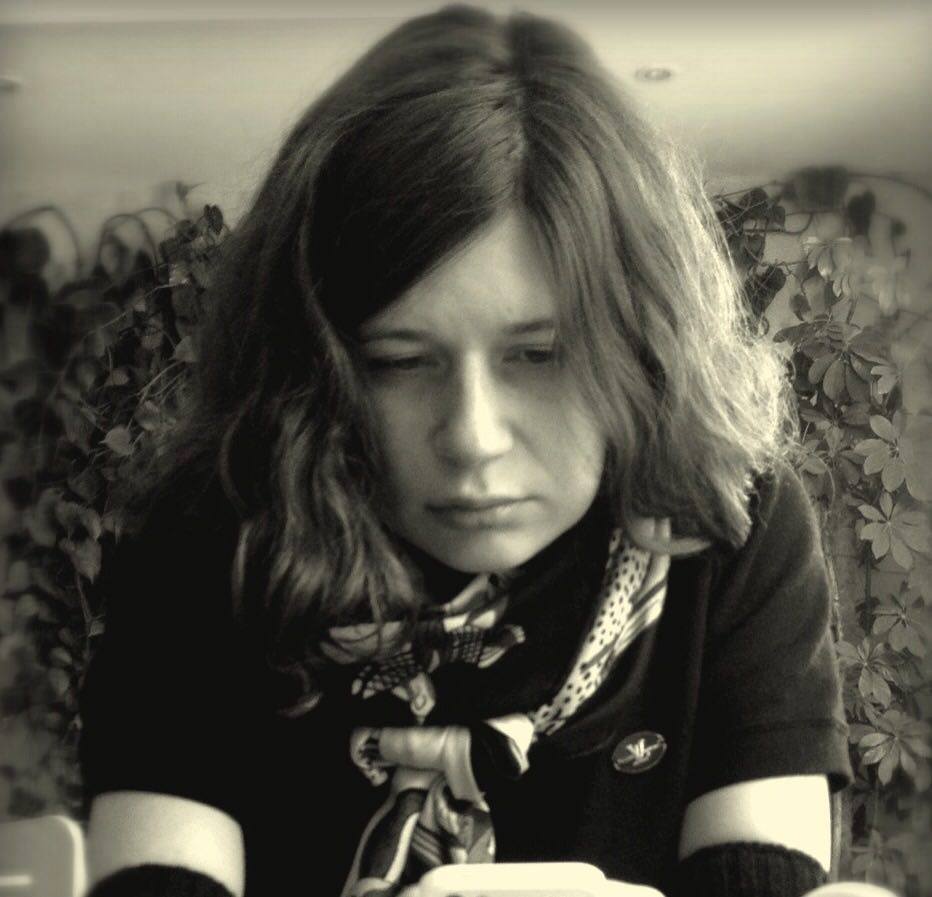
The LetMyPeopleGo campaign asked Nadiya Volkova, lawyer at the Ukrainian Human Rights Helsinki Union and one of the Klykh’s and and Karpiuk’s representatives at the European Court of Human Rights, to comment on the so-called “Chechen Case” and to tell us how it is different from the other cases of the Kremlin's Prisoners.
1. They are being accused of crimes committed 20 years ago
There are a few points in the "Chechen case" which make it different from other cases of the Kremlin’s prisoners. The legal side of the case is very comprehensive. First of all both men are accused of "crimes" which were committed 20 years ago. This makes it very difficult to find evidence of their innocence. Most documents were eliminated from State Archives even if they existed before. Some people who could be witnesses are dead now or it was impossible to find their whereabouts. Those witnesses who were found don’t remember many important details. Witnesses in Mykola Karpiuk case are his close friends who worked with him.
It was very difficult to find witnesses for Stanislav Klykh case because when the "crime" presumably was committed he was a student. Ukrainian law enforcement agencies were not involved in searching for witnesses, leaving it to human rights activists with very limited resources searched for them. Many conferences, rallies and other public actions had to be organized before the human rights activists got the necessary assistance from the state. When witnesses of the defense finally came to Chechnya despite risks being taken, the Judge decided to take a sick leave. Of course, this was not a coincidence because the defense lawyers were informed about the "sickness" of the Judge only on the day of the scheduled hearing. The attack on the human rights activist Ihor Kaliapin was made at the same day when he came to the court hearing to be witness of the defense side. Ukrainian Consul, Kovtun, also was attacked at the same time with Kaliapin. By the way Ukrainian Consul only now was allowed to meet Karpiuk and Klykh.
Read also: Six things you need to know about the show “trial” of Stanislav Klykh
2. Their whereabouts were concealed for 10 months and 1.5 years
The second point, during long period of time (10 months in Klykh's case and 1.5 years in Karpiuk's case) the men were hidden and nobody was allowed to visit them. There were no defense lawyer, no human rights defenders who could help them. Even relatives were not informed about their whereabouts. Furthermore, Karpiuk and Klykh were moved from one place to another approximately every two months to make it impossible to find them.
3. They were tortured to confess against themselves and others
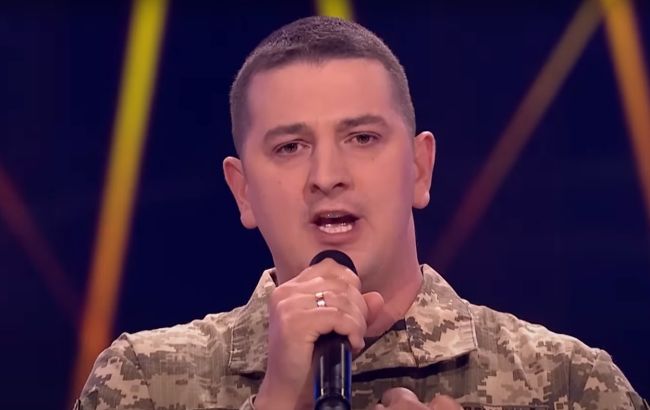
They were very severely tortured to confess in crimes they didn’t commit, but they were also demanded to witness against other people. For example the name of Arseniy Yatsenuk (the Prime Minister of Ukraine) as one of the Chechen militants is mentioned in the indictment 228 times. But we know exactly that Karpiuk didn’t witness against the Prime Minister of Ukraine. This is absurdity, but the case against Yatsenuk was opened by Russian authorities.
Read also: Torture and confessions in Russia
The absurdity and violation of all possible rights of Karpiuk and Klych are not limited to the described examples. Several times, the men's defense lawyers appealed on the illegal methods of the investigation. In all cases, it was denied to open criminal case concerning violations of the investigators, despite clear documentation that were no traces of injuries on the bodies of both men before the arrest, and no less clear documentation of the many traces of injuries which was found by the last medical legal investigation which was assigned by the Supreme Court of Chechen Republic in 2016. All this time they were under control of the investigation of the Russian Federation.
Read also: Beaten, drugged, electrocuted. Ukrainians tortured into “confessing” of Chechnya crimes in Russia
4. Torture in FSB prisons has affected Klykh's mental health
The fourth point and the most important now, Klykh has serious medical problems with his psychological state after the long period of torture. The appropriate psychiatric expertise was not provided, he is called an "imitator" instead. Meanwhile his state is getting worse. Contradicting their statements about imitation, Pretrial Detention Center workers stated to give Klykh unknown pills and to make injections of unknown drugs.
There are no limits to the absurdity and lawlessness of Russian authorities. And this case is evidence of the fact that no one who fall into trap of Russian authorities is not safeguarded against inhuman treatment and finally against cruel cynical annihilation.
[hr]


